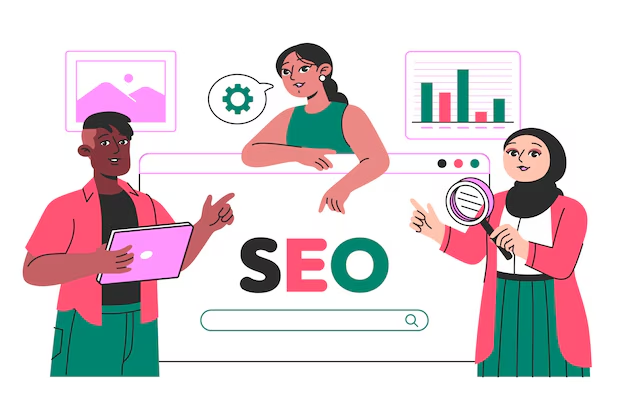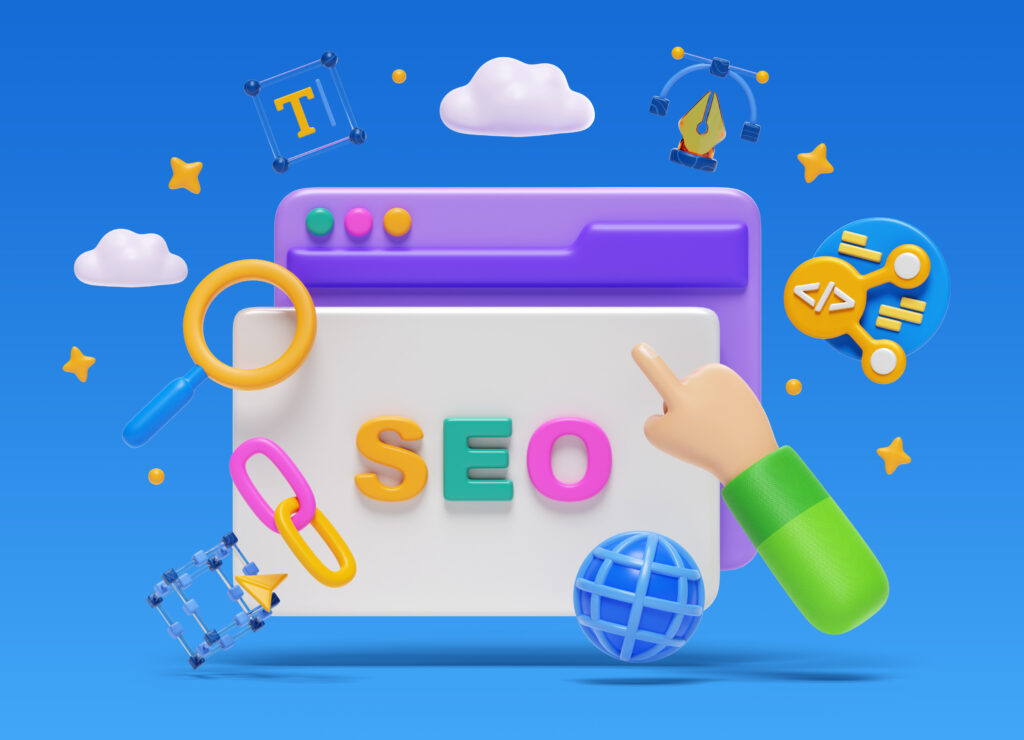On-Page SEO refers to the optimization techniques performed within the pages of your website. Its goal is to make your website pages more visible to search engines and user-friendly. It’s one of the three foundational pillars of SEO, alongside Off Page SEO and Technical SEO.

Types of SEO
There are three main types of SEO:
- On-Page SEO: As defined above, it relates to optimization within your website pages.
- Off-Page SEO: This involves optimization outside of your website, such as acquiring backlinks and promoting your website on social media.
- Technical SEO: This concerns the technical aspects of your website, like website speed, mobile-friendliness, and sitemaps.
Why On-Page SEO Matters More Than Ever in 2024

On page SEO remains crucial in 2024 because it directly impacts how search engines and users perceive and engage with your content. As search algorithms evolve, focusing on high-quality, relevant content and optimal page experience becomes essential. Here’s why on-page SEO is vital:
- Enhanced User Experience: User experience indications, such mobile friendliness, quick page loads, and easily navigable websites, are being given more weight by search engines like Google. Page-by-page SEO
- Content Relevance and Quality: On page SEO focuses on optimizing titles, headings, meta descriptions, and content quality. By strategically using keywords and providing valuable, well-structured information, you increase your content’s relevance, making it more likely to rank for targeted search queries.
- Search Engine Understanding: Proper use of HTML tags, schema markup, and internal linking helps search engines better understand your page’s content. This understanding improves your chances of ranking for the right keywords, attracting qualified traffic.
- Increased Organic Traffic: With effective on-page SEO, your website’s visibility on search engine results pages (SERPs) improves, leading to higher click-through rates and increased organic traffic. As competition intensifies, staying on top of on-page factors can differentiate your content from that of your competitors.
- Adaptability to Algorithm Changes: On page SEO allows websites to quickly adapt to changes in search algorithms, which increasingly favor content that is optimized for both relevance and technical performance.
In 2024, on page SEO is not just about keywords; it’s about creating a seamless, informative, and engaging experience that meets the needs of both users and search engines, ensuring long-term success in the digital landscape.
Importance of On-Page SEO

On-Page SEO plays a crucial role in improving your website’s ranking. When you optimize your website pages correctly, search engines consider your website more relevant and user-friendly. This increases the likelihood of your website receiving more traffic.
Elements of On-Page SEO
On Page SEO involves several elements that affect your website’s ranking. Some of these key elements include:
Keywords
Keywords are the words or phrases that your target audience types into search engines. To optimize your website pages, you should use your target keywords.
Content
Your website’s content is important for your website’s ranking. Ensure that your material is readable, educational, and beneficial to your readers.
HTML Tags
HTML Tags define the structure of your website pages. Some important HTML Tags include:
- Title Tag: This is the title of your website page and appears in search engine results.
- Meta Description: This is a brief description of your website page and appears in search engine results.
- Headings: These help define the structure of your website page.
- Image Alt Text: This is alternative text for your website images and is helpful for visually impaired users.
URL Structure
The structure of your website’s URLs can also affect your website’s ranking. Your URLs should include your target keywords and be easy to understand.
Internal Linking
Internal linking is used to connect the pages of your website it makes it easier for search engines to grasp the relationships between your pages by improving the structure and navigability of your website.
Best Practices for On-Page SEO
Some best practices for On-Page SEO include:
- Create relevant and high-quality content.
- Use your target keywords, but avoid keyword stuffing.
- Make your website pages mobile-friendly.
- Improve your website’s speed.
- Regularly update your website pages.
Examples of On-Page SEO
Some examples of On-Page SEO include:
- Incorporate your target keyword strategically in your website’s title, ensuring it’s natural and relevant to the content.
- Creating user-friendly URLs for your website pages.
- Using alternative text for your website images.
- Creating internal links between your website pages.
Conclusion
On-Page SEO is a cornerstone of effective search engine optimization, playing a pivotal role in enhancing your website’s visibility and attracting organic traffic. You may greatly increase your chances of appearing higher in search engine results pages (SERPs) and eventually accomplishing your digital marketing objectives by carefully optimizing each page of your website.
Final Thoughts
On-Page is an ongoing process. You should regularly update and optimize your website pages to ensure they rank high in search engine results.




